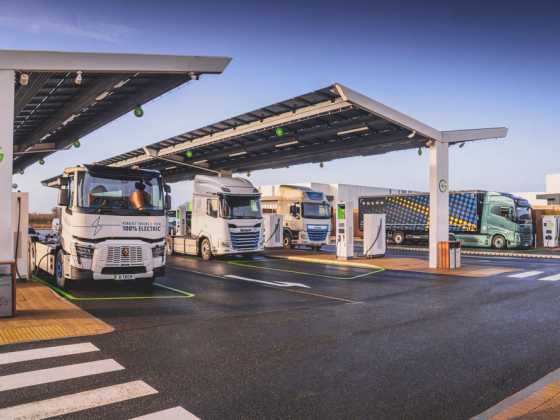Driving towards savings for the public sector
The Crown Commercial Service has launched a vehicle telematics agreement to help the public sector improve fleet safety and efficiency. GreenFleet analyses the framework agreement.
 In May 2016 the Crown Commercial Service (CCS), the government department that provides commercial services and financial savings to the public sector, launched its latest framework agreement to help the public sector improve fleet safety and efficiency.
In May 2016 the Crown Commercial Service (CCS), the government department that provides commercial services and financial savings to the public sector, launched its latest framework agreement to help the public sector improve fleet safety and efficiency.
In a statement the CCS said it was ‘seeking to establish a pan‑government framework agreement for the provision of vehicle telematics goods and services to vehicles which are based and/or travelling throughout the United Kingdom of Great Britain and Northern Ireland, including the Highlands and Islands of Scotland and into Europe.’
The agreement, which was published on 4 May, has been designed to help organisations manage their fleets more effectively by improving safety and efficiency through the use of telematics technology. The CCS has claimed that through the realisation of such benefits, the public sector organisation should be able to save £3 for every £1 invested.
The importance of telematics
Telematics is currently used to allow fleet managers to monitor aspects of their fleet such as fuel consumption, vehicle tracking and driver behaviour, in order to identify ways to make significant cost savings.
An important part of mature fleet management is the collection and
analysis of vehicle telematics data to reduce fleet costs, support employers’ duty of care obligations, increase productivity, improve vehicle security, manage legislative compliance and reduce carbon footprints.
Vehicle telematics also supports the whole life cost management of vehicles by providing live, operational data.
The lots and benefits of the agreement
The deal has been developed in partnership with police, ambulance, local government and central government customers and features a range of suppliers, including small and medium sized businesses.
The 11 suppliers covered under the agreement includes LD Automotive; APD Communications; Ashwoods; E-Pire; EDC Systems (trading as Traffilog UK); Exeros Technologies; FMG Support; Greenroad Technologies UK; L and A consultants; and Ctrack. In addition, public bodies will be able to call off services from suppliers on the framework for the four year life of the contract.
By establishing an agreement for vehicle telematics for public sector organisations, the sector will see a range of benefits.
Advantages include encouraging vehicle tracking which supports the management of risk involved in driver safety (including two-way communication), work planning and vehicle usage.
In particular, by enabling fleet managers to have a better understanding of driver behaviour, they can help improve safety by identifying driver habits and can subsequently source appropriate training needs.
The agreement also offers the potential to achieve a reduction of insurance premiums as well as a reduction in emissions through effective driver behaviour management, fuel consumption efficiency and future vehicle selection. It aids whole life cost analysis and management by tracking servicing, maintenance and repair costs on vehicles.
Furthermore, for vehicles which are in private user schemes, the telematics agreement can help distinguish between operational and private use to help with expenses and tax returns; and supports duty of care and regulatory compliance.
According to the CCS, the vast majority of vehicles to be utilised under the framework will be cars and light commercial vehicles. However, suppliers will be required to provide data recording devices and associated equipment which are suitable for fitting into other types of vehicle including agricultural, construction equipment, plant and boats.
The value of savings
With regards to the savings methodology, the CCS explained the £3:£1 claim is based on the efficiencies and reduction in expenditure achieved in your fleet budget through things like: a reduction in fuel consumption; maximising vehicle usage; a reduction in accidents; and a reduction in insurance premiums.
The original tender documents from the contract have suggested that the total value of the framework could reach between £10.8 million and £24.3 million. Starting on the 25 April 2016, the agreement is due to reach completion on the 25 April 2020.
Currently, only a limited number of manufacturers install telematics technology in their vehicles as standards. However given the rise of mobile Android and Apple apps, a black box is no longer necessary to gain access to the advantages of telematics. Nonetheless it has been pointed out that phone apps could be a potential distraction, especially as the phone needs to be in the vehicle to work.
A growing need for data
In an interview with the Finanical Times, Ralph Morton, editorial director of Business Car Manager, advised that the use of telematics is set to grow considerably over the next few years. It is predicted that by the end of the decade, 75 per cent of vehicles produced will have some level of connectivity to the internet.
Morton said: “All our intelligence suggests that monitoring by telematics is increasingly accepted as a fact of life and the benefits more fully understood. Vehicles also generate data on how they are being driven – perhaps too much acceleration or speeding – allowing companies to take intelligent decisions about driver training and to the benefit of fuel consumption and accident reduction.
“Reasons for breakdown and likely component failure rates can also be identified. Evermore importantly, it also allows fleets to demonstrate to insurers the levels of safety they have achieved, with the potential for reduced premiums.”
Further Information
ccs-agreements.cabinetoffice.gov.uk/contracts/rm3754






